Israeli Premier Flies To Russia For First Meeting With Putin
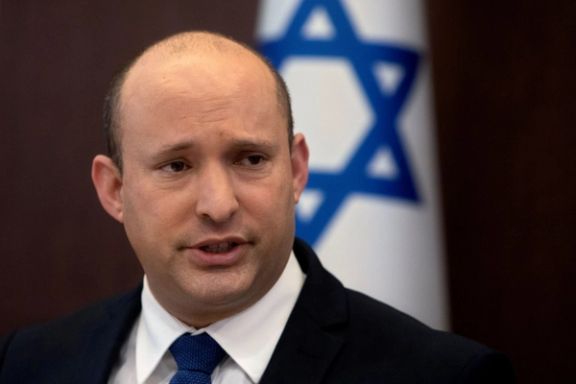
Israeli Prime Minister Naftali Bennett flew to Russia on Friday for his first meeting as premier with Russian President Vladimir Putin, amid tensions with Iran.

Israeli Prime Minister Naftali Bennett flew to Russia on Friday for his first meeting as premier with Russian President Vladimir Putin, amid tensions with Iran.
Bennett stressed the importance of the relationship between Israel and Russia, highlighting the "million" Russian speakers who live in the country.
Bennett’s predecessor, Benjamin Netanyahu regularly had meetings with Putin to regulate their interactions regarding Syria.
Bennett also confirmed Israel's international status was "significantly strengthening" and was progressing well.
Bennett will meet Putin to discuss political, security and economic issues, including the Iran nuclear program.
The two countries operate a military hotline to coordinate air force operations over Syria to avoid clashes.
Israel often attacks Iranian-linked targets in Syria, while Russia has provided protection for the Bashar al-Assad’s government in Syria.
Russia is one of the international parties that negotiated a 2015 nuclear deal with Iran.
The deal fell apart after then-President Donald Trump withdrew in 2018.
But the new US administration is now trying to revive the deal that would lift sanctions and offer a lifeline to the Islamic Republic — a step that Israel, Saudi Arabia and others in the region oppose.

Azerbaijan on Thursday confirmed the release of two Iranian truck drivers it arrested last month on a transit road it captured from Armenia last year.
Nour News, a website close to Supreme National Security Council Secretary Ali Shamkhani, reported Thursday morning that the two truck drivers had been handed over to the Iranian embassy in Baku and were preparing to leave the country.
Reflecting eased tensions between the two countries, Azerbaijan said its decision to free the drivers was "guided by principles of humanitarianism, mutual respect, and good neighborliness."
The move followed a phone-call between Iranian foreign minister Hossein Amir-Abdollahian and his Azeri counterpart Jeyhun Bayramov October 13 during which the two sides agreed to put a stop to "harmful rhetoric" and resolve problems through dialogue.
Iran’s Roads and Transportation Agency ordered transport companies Wednesday to "comply with the laws" and "take the sensitivities of [Azerbaijan] into consideration” given its acquisition of territory from Armenia during the 44-day Nagorno-Karabakh conflict of 2020. This, the agency said, would require Iranian drivers to avoid the Armenian-populated Karabakh enclave of Azerbaijan when travelling through Armenia.
Nour News on Wednesday said "lack of due diligence of some private transportation companies" had given "certain anti-Iranian factions” in Azerbaijan “an excuse" against Iran and had led to Baku making "verbal challenges…[that] are not in either country's interests."
Nour News welcomed the communique from the Roads and Transportation Agency, which it said would “block the path to any squabbles by those opposed to [good] relations between the two countries and certain third parties while illustrating Iran's official and constant stance of respect for the territorial integrity of the Republic of Azerbaijan.”
Baku restricted Iranian access to Armenia along roads it captured from Armenian forces last year, but Iran-Azerbaijan relations have been remained strained since the war when Tehran was alarmed by reports of Turkey deploying militant Sunni fighters recruited in Syria to join Azerbaijani forces. Tehran has been long been concerned over Azerbaijan’s relationship with Israel, an oil customer, and reports that Baku has allowed Israeli access to its airspace.
After the arrest of the two Iranian truck drivers, officials and media in both countries ramped up critical rhetoric. Iran held extensive military drills near the border area after military drills between Turkey, Azerbaijan and Pakistan.
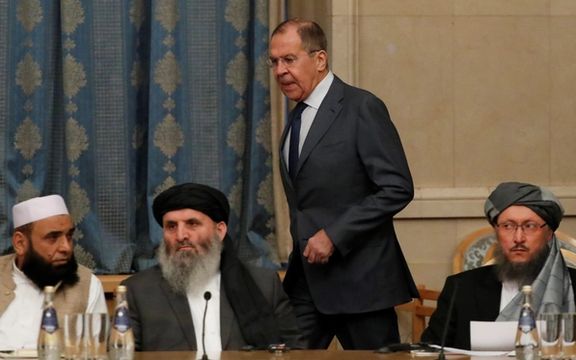
A foreign ministry official in Iran has criticized Russia’s “weak management” of the Afghan conference in Moscow on Wednesday, saying no consensus was reached.
Rasul Mousavi, general director of the ministry’s West Asia desk also complained that what was issued as a joint statement on the Russian foreign ministry’s website was not reflecting the collective view of the participants.
The conference also included representatives from the Taliban, Pakistan, China, India and Central Asian countries. After the meeting ended in Moscow, Mousavi tweeted that despite no results after “serious discussion over regional cooperation for peace, stability and security in Afghanistan” the meeting ended.
In a rare rebuke to Russia, the Iranian diplomat said that what was issued after the conference was not a joint statement.
Following his remarks, the Russian embassy in Tehran published the statement that says participating countries agree to cooperate with the Taliban to promote regional stability and demanded that the new rulers in Afghanistan respect the rights of women, children and minority ethnic and religious groups.
Mousavi responded by saying that the statement was not read at the meeting and agreed upon.
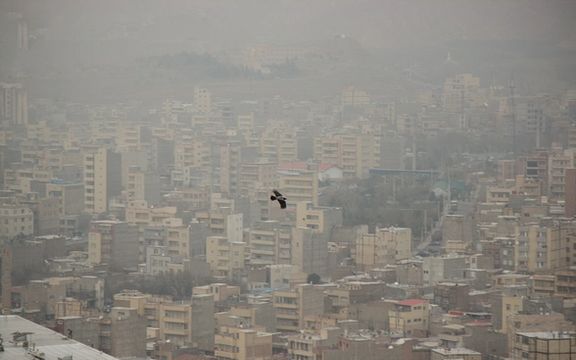
Power plants in Iran have have switched from natural gas to heavy fuel oils before the peak winter months, in what could lead to heavy pollution in cities.
The head of electricity generation in Iran’s East Azerbaijan province, Mohsen Mousavi told a meeting in the provincial capital Tabriz that the energy ministry ordered them to begin using mazut instead of liquid gas months before Iranian power plants usually do the switch in high-demand winter months.
Iran has been experiencing natural gas shortages to fuel its power plants in cold and hot months. Last winter and early in summer, power plants switched the mazut, which is a dirty diesel fuel. Heavy smog and pollution covered major cities leading to public outcry.
The early use of mazut will inevitably lead to dangerous levels of pollution in major cities, as the cold season is just beginning in Iran and could last until late February. Mousavi said the power plant in Tabriz belongs to a private owner and the government cannot even install equipment to reduce pollution. The plant produces just 300 megawatts of power and a local official said it is not worth endangering the lives of the city’s residents.
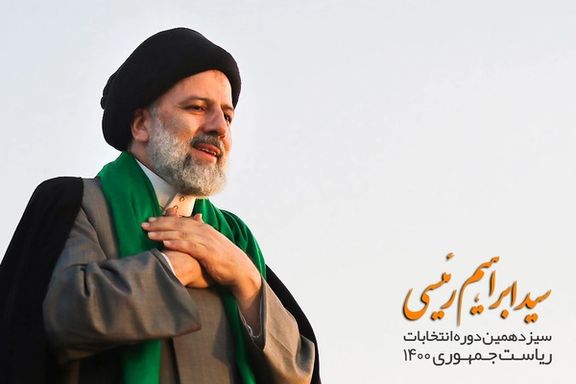
For the second time since taking office, President Ebrahim Raisi gave a televised interview Monday to explain how he wants to tackle Iran's economic crisis.
The highlight of what he said was a point that was not new: "I am not going to tie the people's livelihood to the nuclear negotiations."
This has been one of his persisting slogans in recent weeks, meaning Iran will not make concessions to the West to get sanctions relief. Instead, it will try to deal with its economic crisis through self-reliance and closer relations with China and Russia.
Conservative news website Alef, however, wrote in a commentary on Tuesday that the president can solve problems only if he has the right middle managers.
Alef wrote: "Some 75 days after taking office as President, still many seats remain vacant in Raisi's administration." Citing the government's own website, Alef wrote that parts of the government including the President's Office and the Interior Ministry still do not have the right officials that can bring about the changes planned by Raisi. The Ministry of Education has still no minister more than a month after the beginning of the new academic year.

Alef noted that "the least degree of overhaul has taken place in the economic ministries, where changes are most needed." The website observed that with all the tough economic problems the government faces, there is no one to carry out orders coming from the top.
As an example, according to moderate conservative Khabar Online website, Raisi once again issued orders to three ministries on Tuesday to take measures "to give peace of mind to the people about their livelihood and to put an end to inaction within the government and to sort out the instability in the markets." Like always, Raisi called for "immediate, serious and revolutionary measures" while observers say there is no one to carry out these orders.
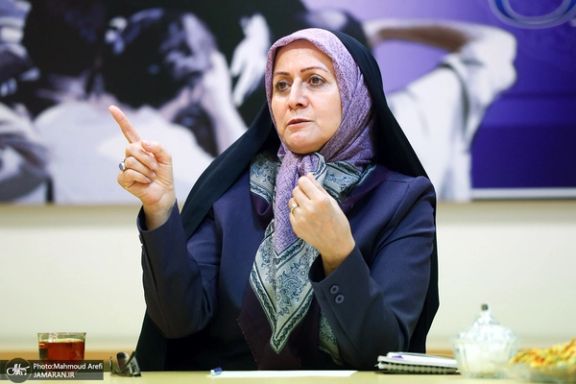
In an interview with reformist daily Arman, right-of-center former lawmaker and Tehran City Council member Sharbanu Amani said that the most important problem for Raisi is that his government "has no plans and roadmaps and that is why it seems to be confused about many things."
Ms. Amani charged that neither Raisi, nor his aides have ever told the people about the details of their plans for solving the country's problems. She added that "although Raisi has been part of the Iranian government for at least 40 years, he still does not have a full team to support him. There was no team even when he was running for the office."
The outspoken politician said: "Raisi was elected in an extremely low-turnout election. He was expected to be in a hurry to seek the nation's support by acting quickly to solve problems. But we see that he has set up one of the weakest administrations in Iran when we look at his top officials. Most of his managers, who are mainly the former aides of Mahmoud Ahmadinejad, look at problems from a military and security perspective. This comes while we expected him to behave in a way that would return the public's trust in the government."
Amani said Raisi may find it difficult to restore public trust. In his visit to Bushehr Province, he asked the local governor to solve long-standing problems within ten days while everyone knows that would be impossible as economic problems cannot be solved by issuing orders.
Ms. Amani warned that Iran's economic crisis is serious, yet, the Raisi administration has not taken any positive step to solve Iran’s nuclear dispute and help lift sanctions, while the Covid pandemic is also taking its toll. The parliament, packed by hardliners, which was supposed to help the likeminded president has done nothing. In the meantime, useless decisions such as a planned 20-year deal with Venezuela, a country with its own severe economic crisis is questionable. Selecting Mohammad Eslami as nuclear chief and Hossein Amir-Abdollahian as Foreign Minister were also wrong decisions. They do not know the basics of their job, she maintained.
However, Ms. Amani said: We cannot blame Raisi for all the problems. Those who omitted all other candidates and narrowed down the people's choice to Raisi are also to be blamed for the situation.
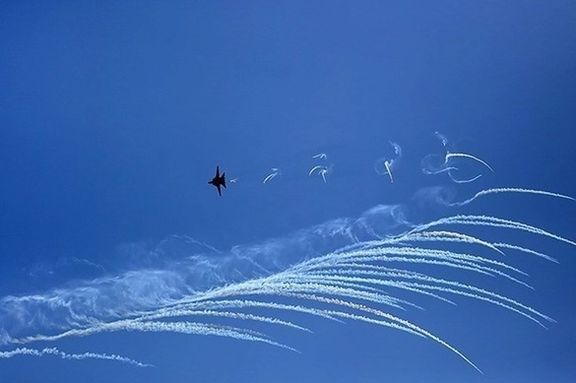
Iran's air force has begun the last round of exercises on Thursday with warplanes and drones in action, a statement carried by government-controlled media said.
The commander of the army’s air force, General Hamid Vahedi said that for the first time in the ten-year history of the annual drills, operations were tested on a “decentralized” fashion.
Command centers in the central city of Esfahan, Bushehr and Bandar Abbas on the Persian Gulf, Dezful in the southwest, Tabriz in the northwest and central command guided warplanes to their air and ground targets.
The Islamic Republic does not possess an effective traditional air force capable of competing with modern rivals due to decades of sanctions preventing the purchase and maintenance of warplanes. Instead, it has relied on the development of a large missile arsenal, with a range of 2,000 kilometers. It is also developing a large fleet of drones and trying to make equip them with more electronic equipment for guidance and evasion.
The statement claimed that aircraft were able to refuel in the air “both within and beyond the borders”. It also said an important goal of the drills was to test low-altitude flight without the use of aircraft’s navigation system.